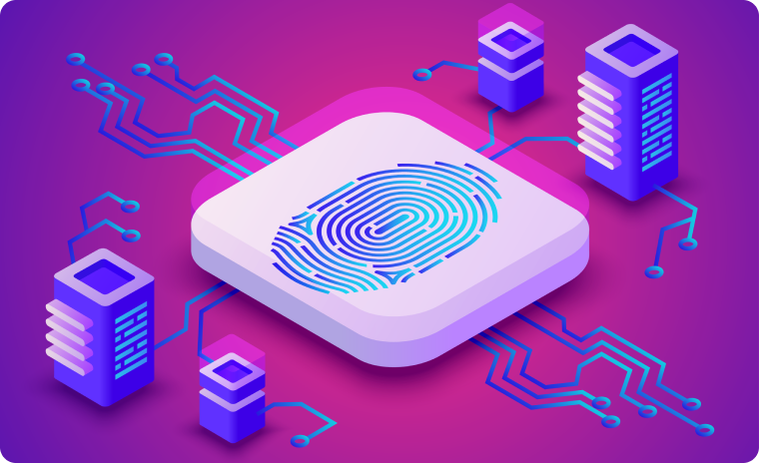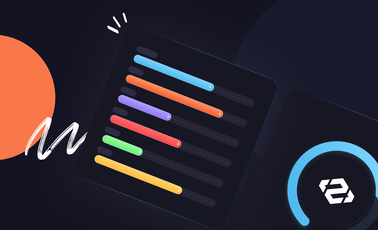Blockchain as the Key to the Internet of Value
Web 3.0 is ushering in a new age of internet connectivity. It is a direct response to the problems that have plagued Web 2.0 for years, and is thus designed as a decentralized, trustless, and permissionless network from the get-go. Underpinning Web 3.0 is the distributed ledger technology, which ensures that information, transactions, or contracts are cryptographically stored over a distributed network of nodes whereby each node gets to keep a copy of the data. This format minimizes the risk of data manipulation as the data on the manipulated copy would not match the data on the other copies kept on different nodes.
Blockchain keeps data in a time-stamped string of blocks. This practice not only ensures the immutability of data, but also holds the keys to the solution of one of the biggest pains of internet users: Having just the right amount of confidentiality. People do not want to unnecessarily reveal private information unless they absolutely have to, but want to be able to produce proof of identity when needed. Transactions on blockchain can be traced back to the person who executed that transaction, but that person will not have to reveal his personal information to get the transaction done. This very feature has helped IBM and Walmart put in a system in China to track-and-trace food products over the whole supply chain and get to the bottom of a problem in case something goes wrong. The system also makes it easier for the authorities to verify whether the claims of "organic" production or "fair trade" practices hold water.
This is why finance industry is so keen on blockchain technology. Blockchain can keep an immutable proof of identity that will be universally accepted while offering the users a very high level of confidentiality. One common hurdle in banking services is the know-your-customer (KYC) procedure that is indispensable to almost everything a bank does for its customers. KYC entails the identification and verification of a person's identity. It may involve submitting a national ID card or a passport, high-quality photographs, and complete and legible documentation, among other things. It rarely ends with the submission of the necessary documents, though, as the process can take up to several weeks in countries like the U.S.A. and U.K. Imagine doing business in different regions of a vast country like the U.S. and having to go through this process in every city you conduct business. That would certainly be enough of a waste of time to discourage some people from doing business.
Customers are not the only party to be discouraged by the KYC procedure. KYC is one of the main barriers for local banks in the U.S to attract new customers. Not willing to go through the same ordeal in every city they conduct business in, customers are attracted to bigger national banks with branches in different states and cities.
Blockchain offers the perfect solution to mitigate the KYC problem. It allows the conversion of customer data (including your personal information and history file) into a hash code so that it can be saved on a crypto wallet. Sharing the hash code with the other banks in the system is perfectly safe as it is a one-way function: The hash code can't be used to reproduce the data stored in it.
When the customer shows up at the local branch of a bank in some other country and produces his hash code, all the bank has to do is to see if the hash code matches with the one on the system to find out if the customer is really the person he claims to be. Blockchain's solution takes care of the whole KYC process in an instant and can be implemented universally. It ensures that national borders are no longer an obstacle for you to enjoy financial services away from your home country. Your whole credit history will be with you when you visit a bank in a foreign country, and you won't have to start all over again. This is an immense benefit for the 3 billion people who are "unbanked "right now. People like refugees who lack the financial records to kickstart a new life away from home stand to gain so much from this breakthrough in the KYC process.
Blockchain technology guarantees that information will be coded and distributed across a network of nodes, which removes the possibility of data editing and ensures authenticity. The immutable record stored in the hash code can be used to protect sensitive information like deeds and legal contracts in war-torn countries where state authority is non-existent. In that sense, blockchain transforms the internet from a network of information into a network of value where assets can be preserved and exchanged. It removes government custody over a person's assets and facilitates the free movement of value. In more creative use cases, it can even be leveraged to set up a trustworthy voting system that cannot be rigged, and restore trust in the democratic institutions and processes.
The use cases listed above are just the tip of the iceberg—it seems blockchain will find its way into every aspect of our lives. However, the end-user won't be able to consider all these use cases and come up with solutions for his own problems since the blockchain domain comes with its particular set of challenges:
- Scalability remains an obstacle where new data is added to the existing string of blocks and every node in the network is supposed to store that data
- Security is a challenge, as was illustrated by the attack performed against Ethereum in 2016 that forced a hard fork
- Regulations are not in place yet
Dealing with these challenges requires a certain level of domain expertise which the end-users lack. No-code technology can definitely help here and facilitate know-how transfer from domain experts to the general public. Experts can employ no-code templates to define and serve the most common use cases, accelerating the revolution blockchain is expected to trigger in internet technology.




 Please
fill out this field
Please
fill out this field













